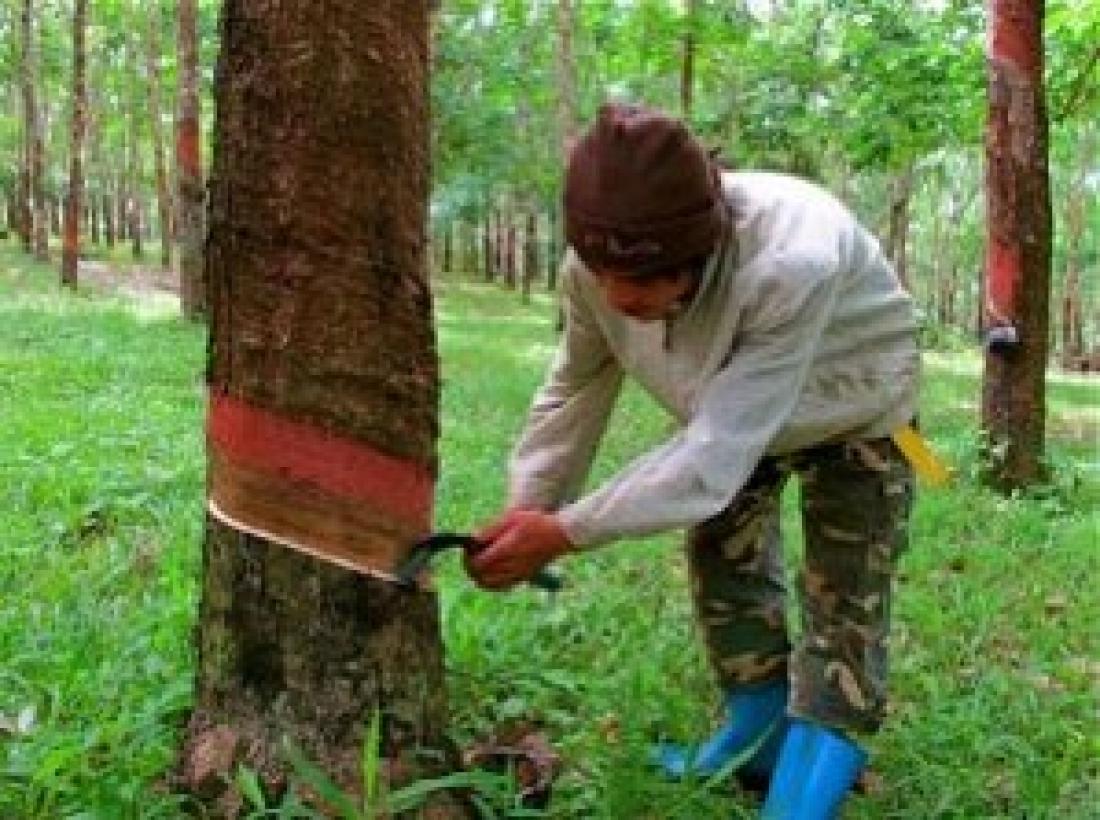Tapping a rubber tree on a Thai plantation. The FBLI project in Southeast Asia supports research on the impact of agricultural expansion on human health. Copyright: PATTAMAPORN KITTAYAPONG
Agricultural production is rapidly expanding in Southeast Asia. While this can lead to improved food security, nutrition, and income in the region, it also increases the risk of disease, exposure to chemicals, and the loss of biodiversity. The International Development Research Centre (IDRC)-supported Ecohealth Field Building Initiative (FBLI) supports research in the region that aims to improve understanding of the effects of agricultural change on ecosystems and human health, and provide sustainable solutions.
Developed jointly by research centres in China, Indonesia, Thailand, and Vietnam, the FBLI program was launched in 2012 as a five-year initiative designed to:
strengthen the ecohealth field in Southeast Asia, and build a mature field of research, training, and practice;
train a new generation of researchers and practitioners in the region;
produce useful and relevant research for policy and decision-making; and
create links between research and policy circles in Southeast Asia and China.
Building knowledge of ecohealth research methods
A central focus of the initiative has been to support the training of young researchers and professionals in the field of ecohealth. The FBLI team held a series of four workshops offering training in ecohealth research methods to educators interested in including the approach in their curriculums. The team’s Ecohealth Trainer Manual was used during this workshop series and has been very well received throughout the region.
Between January and May 2014, the FBLI team held another series of workshops to help early-career professionals apply ecohealth principles in their work. The Global Health True Leaders workshops offered training in ecohealth concepts, global health issues, values and ethics in public life, cultural sensitivity, communications, networking, and proposal writing. The workshops drew nearly 200 students and young professionals from across Southeast Asia.
Incorporating ecohealth approaches into higher education
The FBLI has also overseen the development and launch of a number of ecohealth courses and degree programs in the region:
- At the University of Indonesia, undergraduate public health students are now required to take a course on global health that includes ecohealth approaches to health research.
- The Faculty of Science at Thailand's University of Mahidol is processing applications for the first cohort of MSc and PhD students in the Ecohealth Management program, to be launched in 2014.
- As of May 2014, third-year public health students at Mahidol can study ecohealth approaches at the Hanoi School of Public Health. This exchange program also includes a component for field work at the FBLI Vietnam study site.
- The Hanoi School of Public Health offers a course entitled “Introduction to Ecohealth” and is developing a training workshop on avian influenza and an elective course on the Ecohealth/OneHealth approach.
Next steps
The FBLI project also supports four research projects that investigate the impact of agricultural change on human health in Southeast Asia, one in each FBLI country. The research teams are still in the early stages of data collection and analysis. Local stakeholders are actively involved in the validation of research findings, testing intervention programs, and eventually, the evaluation of their impact. There is also cross-fertilization between FBLI researchers and IDRC-supported networks, as many of the researchers are also involved in the Asian Partnership for Emerging Infectious Disease Research network.



